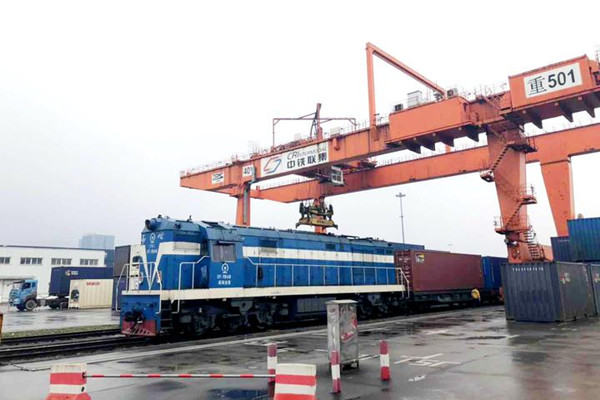Train route of Ningbo-Zhoushan Port handles first cargo to Germany

Ningbo-Zhoushan Port's first batch of cargo heading for Germany leaves Chongqing on Jan 14 from the city's railway container distribution center. [Photo/zj.zjol.com]
Ningbo-Zhoushan Port recently extended its international intermodal transport business to Germany, with its first batch of cargo heading for the country arriving at Chongqing on Jan 14 through the Chongqing-Ningbo cargo train route of the port.
The cargo, consisting of nine twenty-foot-equivalent units (TEUs), headed then for Duisburg, Germany, via the Chongqing-Sinkiang-Europe International Railway.
This was just a small part of the entire cargo, which will be transported in small batches multiple times. It is a logistics plan specially designed by the port for its client, as the client only produces two TEUs a day and much additional storage cost will be generated before the whole cargo is transported altogether in one time.
The first cargo to Germany will take only 20 days to arrive at the destination, which will save over ten days compared with the previously normal route of sea transportation, according to the port.
The transportation of cargo through the combination of the Chongqing-Ningbo cargo train route and the Chongqing-Sinkiang-Europe International Railway will greatly enhance the influence of the port's international intermodal transport services in the Central European cargo transport market, and provide a convenient logistics channel for imports and exports from Ningbo and neighboring areas to Central Europe, Russia, and Central Asia.
The Chongqing-Ningbo cargo train route, since entering operations early last year, has become an important bridge that links the port to the Silk and Road Economic Belt. It has seen 143 trips run by its trains by the end of 2018, transporting 16,686 TEUs in total, of which 95.4 percent were heading for overseas countries.



 Print
Print Mail
Mail
